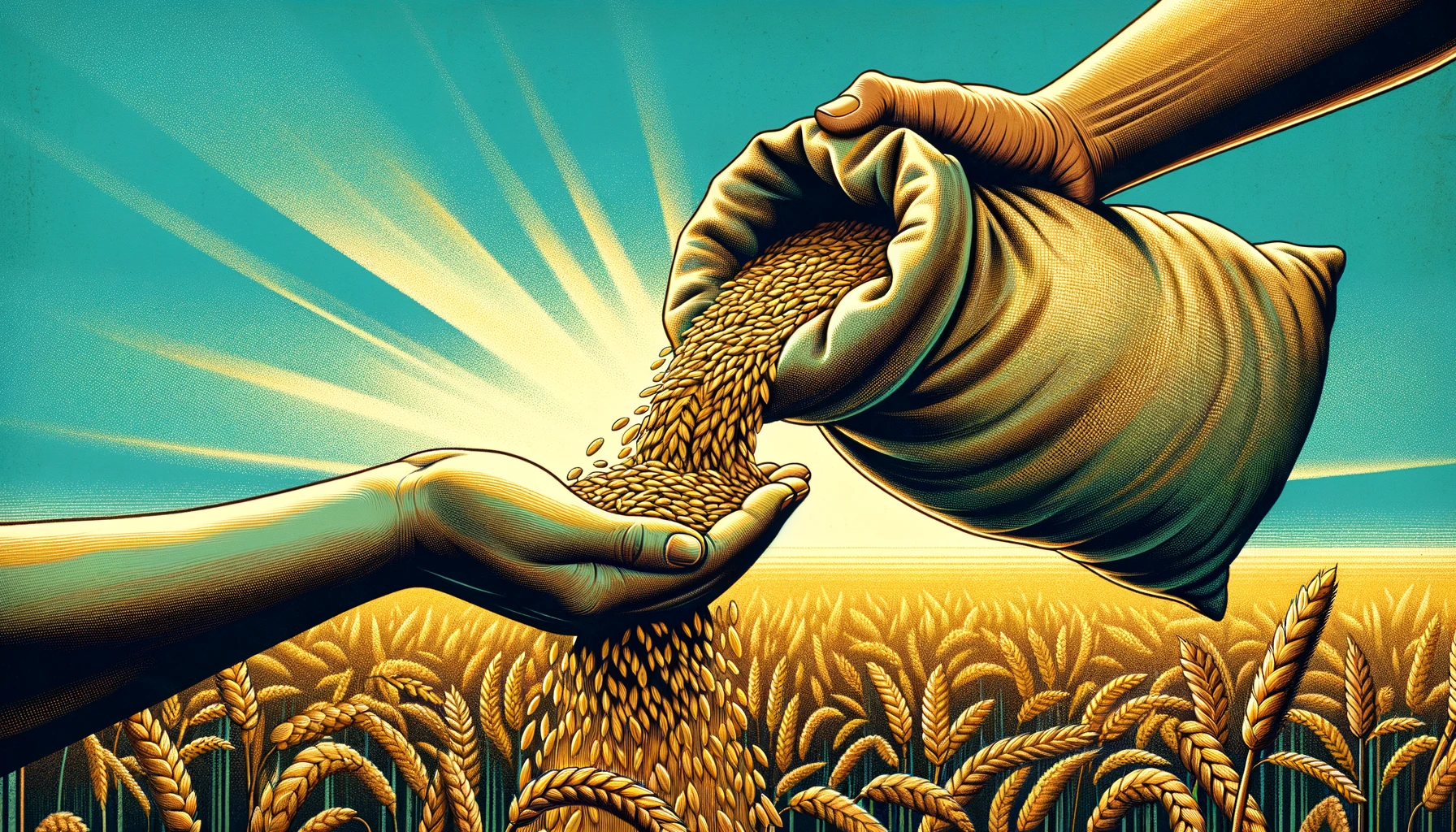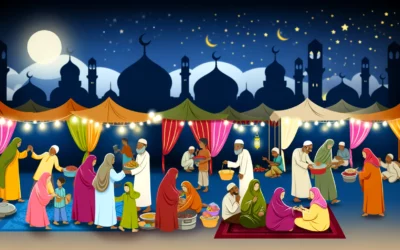Table of Contents
ToggleEvery Muslim is obligated to fast throughout the month of Ramadan, fulfill the fitrah, and honor their commitments. Breaking these religious mandates or straying from the path of righteousness constitutes a sin. To atone for such transgressions, Muslims must make a mandatory charitable payment known as kaffara. This act of penance represents a sincere effort to seek forgiveness from Allah. Specific regulations dictate eligibility for paying kaffara and the amount required from each individual.
What is the Meaning of Kaffara?
Kaffara originates from the Arabic root ‘kafar’, signifying ‘to cover’. In the context of Islamic jurisprudence, kaffara refers to the atonement or reparation for a sin or wrongdoing. It is the required act of expiation for individuals who breach Islamic tenets or directives. Kaffara acts as a form of worship and a method to seek Allah’s forgiveness, symbolizing the sinner’s effort to mend the spiritual breach caused by their actions.
Who Has to Pay Kaffara
The Holy Quran and Prophet Muhammad (PBUH) outline five specific offences that necessitate the payment of kaffara. These offences are:
- Intentionally breaking the fast on any day during Ramadan.
- Failing to fulfill a sworn oath.
- Breaching the sacred ihram conditions during the Hajj pilgrimage.
- Causing death, whether unintentionally or intentionally.
- Engaging in Zihar, which involves the wrongful declaration of spousal alienation
What is the Kaffara for Breaking Fast?
Fasting during Ramadan is one of the core pillars of Islam and is greatly revered by Muslims globally. Kaffara is obligatory for every adult Muslim who deliberately misses or nullifies their fast during Ramadan without a legitimate excuse. The Holy Quran states that any mentally capable adult Muslim who intentionally breaks a fast during Ramadan without a valid reason commits a severe sin, risking God’s wrath and suffering in both this world and the afterlife.
A prominent Islamic scholar has placed the deliberate breaking of a Ramadan fast as the sixth most severe sin out of the top 70 sins in Islam. Prophet Muhammad (PBUH) depicted hell as a place where individuals are suspended upside down by their Achilles tendons, with their mouths torn and bleeding, signifying the fate of those who break their fast prematurely.
The actions that lead to the invalidation of a fast include:
- Deliberately planning to skip one or more fasts.
- Knowingly consuming food or drink during the hours of fasting.
- Participating in sexual activities or masturbation while fasting.
- Intentionally inflicting harm upon oneself, another person, or an animal.
- Forcing oneself to vomit intentionally.
The kaffara for intentionally breaking a fast during Ramadan is defined by three distinct forms, which must be followed in a specific order. A person is required to undertake the first form of kaffara unless it is unfeasible due to unavailability or financial constraints. If the first form cannot be performed, only then may the individual proceed to the second form. If the second form is also unattainable, then and only then can the person resort to the third form of kaffara. It is mandatory to complete one of these three forms of expiation to adequately fulfill the kaffara for breaking the fast.
The First Method:
The initial form of kaffara involves liberating an enslaved Muslim. If one is unable to find an enslaved Muslim or lacks the resources to free one, then they may proceed to the second form of kaffara.
The Second Method:
The second form of kaffara requires fasting for two consecutive lunar months. For each day of fasting missed intentionally during Ramadan, the individual must fast continuously for two months. Additionally, if the person intentionally breaks their fast at any point during these two months of kaffara, they are obligated to restart the entire two-month fasting period from the beginning.
The Third Method:
If fasting for two consecutive months is not feasible due to valid reasons, the third form of kaffara can be undertaken, which involves feeding 60 needy individuals. For each day of fasting intentionally missed during Ramadan, a Muslim must provide meals to 60 impoverished people. This can be accomplished by offering 60 meals to one person in need, distributing six meals each to 10 poor individuals, or any other combination that totals 60 meals per missed fasting day. Additionally, a Muslim has the option to donate to a charitable organization, which will then ensure that 60 meals are provided to the needy on their behalf for each day of fasting that was intentionally not observed.
Muslims often pay kaffara in terms of money. They can choose to make a payment to the needy, which is equivalent to the value of 60 sa’a of food. Sa’a is a measurement unit used during the time of Prophet Muhammad (PBUH) and is equal to 4 double handfuls of grain. At that time, the people of Madinah had a volume measurement unit for 60 sa’a known as a wasq, which weighed 130.56 kg in modern measurement units. The food to give as kaffara should include something that the people consider a staple that can be easily stored without a refrigerator, such as wheat, rice, and dried fruits.
How to Measure the Kaffara for Breaking Fast?
If fasting for two consecutive months is not feasible due to valid reasons, the third form of kaffara can be undertaken, which involves feeding 60 needy individuals. For each day of fasting intentionally missed during Ramadan, a Muslim must provide meals to 60 impoverished people. This can be accomplished by offering 60 meals to one person in need, distributing six meals each to 10 poor individuals, or any other combination that totals 60 meals per missed fasting day. Additionally, a Muslim has the option to donate to a charitable organization, which will then ensure that 60 meals are provided to the needy on their behalf for each day of fasting that was intentionally not observed.
What is the Difference Between Fidya and Kaffara?
Kaffara and fidya are distinct forms of atonement in Islam, both addressing missed or invalidated fasts, but with key differences. Fidya applies when fasts are missed or broken out of necessity and the individual cannot compensate for them later due to valid reasons, such as pregnancy, illness, or old age. In contrast, kaffara is required for fasts that are deliberately missed or broken without any legitimate justification.
What is Kaffara for Breaking Oath?
Kaffara extends beyond fasting during Ramadan and applies to various other contexts requiring atonement for sins. When making promises or taking oaths in the name of Allah, one must act responsibly. If a promise aimed at a noble cause is made, it should be fulfilled despite challenges. Conversely, if one swears by Allah to commit a sin or harm others, they must abstain from such actions. Should one transgress, sincere repentance is necessary. Regardless of the circumstances, kaffara is due, whether for breaking a noble oath or for contemplating sinful acts in Allah’s name.
Muslims are encouraged to devoutly practice their faith, keeping Allah at the forefront of their thoughts, and to diligently follow His guidance, resisting the urge to breach Islamic teachings. Violations of these divine laws necessitate the payment of kaffara, as a means to atone for sins and seek Allah’s mercy. This act of penance is crucial for attaining redemption.

















